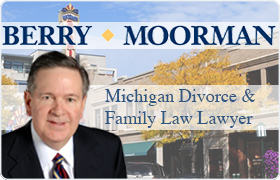Clawson Divorce & Family Law Lawyer, Michigan, page 2
Sponsored Law Firm
-
 x
x

Click For More Info:
-
Berry • Moorman
255 E. Brown Street Suite 320 Birmingham, MI 48009 » view mapDivorce, Alimony, Child Support, Custody Professional Corporation | Attorneys at Law
Whether you are an individual or large publicly held corporation, our attorneys are dedicated to delivering skilled legal counsel and exceptional service to our clients.
800-929-4710  John J. Schrot Jr. Birmingham, MI
John J. Schrot Jr. Birmingham, MIAttorney At Law - MI, 1977
Michigan State University, J.D. - 1977
 News & Publications
News & PublicationsClick here for links to the latest news and publications from our practice.
Austin M. Hirschhorn
Criminal, Divorce & Family Law, Child Custody
Status: In Good Standing Licensed: 64 Years
Patrick M. McCarthy
Divorce, Child Support, Guardianships & Conservatorships, Child Custody
Status: In Good Standing Licensed: 24 Years
Edward C. Pedersen
Personal Injury, Criminal, Divorce, Residential Real Estate
Status: In Good Standing Licensed: 39 Years
Michael Gregory Mitchell
Criminal, Real Estate, Divorce & Family Law
Status: In Good Standing Licensed: 12 Years
Carolyn J. Jackson
Accident & Injury, Divorce & Family Law, Employment, Lawsuit & Dispute
Status: In Good Standing Licensed: 29 Years
Timothy P. McGlinchey
Wills & Probate, Family Law, Business Organization, Medical Malpractice
Status: In Good Standing Licensed: 27 Years
Mark S. Papazian
Personal Injury, Family Law, Environmental Law, Business, Mass Torts
Status: In Good Standing


 John J. Schrot Jr. Birmingham, MI
John J. Schrot Jr. Birmingham, MI News & Publications
News & Publications
